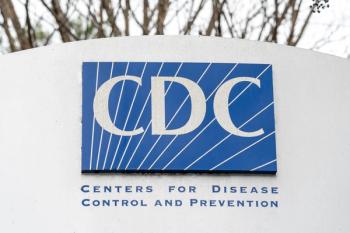
Why are children’s COVID-19 vaccination rates so low?
This study surveyed parents’ opinions on the risks of COVID-19 infection versus vaccination to determine how they affected the decision to vaccinate a child against COVID-19.
Although 92% of American adults have received at least 1 COVID-19 vaccine, only 39% of children 5-11 years of age and 68% of adolescents 12-17 years old have been vaccinated.
Public health officials have made significant efforts to assure parents about the safety of
A new
“Parents’ hesitancy may be partly driven by apprehension about the vaccine, stemming from its rapid development and the use of newer techniques,” said study leader Ying Liu, a research scientist for the Center for Economic and Social Research (CESR) at the USC Dornsife College of Letters, Arts, and Sciences.
The study was conducted during February-March 2022, a period when Omicron was the dominant variant. The investigators identified parent participants from a nationally representative, probability-based internet panel. The parents were surveyed regarding vaccination of their school-aged children, their perceptions that the vaccine’s long-term risks outweigh the risk without vaccination (comparative long-term risk), their tendency to feel more responsible if their child became sick from vaccination than while unvaccinated (anticipated responsibility), and their own vaccination status.
The investigators used multivariate analyses to assess correlation between children’s COVID-19 vaccination, parental comparative long-term risk perceptions, anticipated responsibility, paternal vaccination status, and demographics.
A total of 1715 parent respondents met inclusion criteria. Among them, 45% gave greater weight to vaccine-related comparative long-term risk and 18% anticipated greater responsibility from vaccination than from non-vaccination.
After reviewing parental vaccination status, the investigators found parents who were more concerned with comparative long-term risk were 6% less likely to have vaccinated their child(ren), while parents with greater anticipated responsibility were 19% less likely to have vaccinated their child(ren) against COVID-19. The investigators noted the robustness of these findings were driven by vaccinated parents.
“People often exhibit a more cautious approach when making medical decisions for others, including their own children, than for themselves,” said Liu. “Some tend to do nothing rather than vaccinate their child, even though such inaction could result in negative consequences.”
This study concluded that parents’ perceptions of the COVID-19 vaccine’s long-term comparative risk and feeling greater anticipated responsibility for children getting sick if vaccinated (versus unvaccinated) were associated with lower vaccine uptake among children of vaccinated parents.
Newsletter
Access practical, evidence-based guidance to support better care for our youngest patients. Join our email list for the latest clinical updates.






